Henry Kissinger in "New Order", posits that the system of world is based on two components: a set of commonly accepted rules that define the limits of permissible action and a balance of power that enforces restraint where rules break down, preventing one political unit from subjugating all others. Pandemics have played a major role in history in resetting the global equilibrium. During World War I, Influenza fostered in the crowded conditions of military camps in the United States and in the trenches of the Western Front in Europe. The high mortality in healthy people, including those in the 20-40 year age group, was its unique feature. In other words, that pandemic was a war deterrent. Today’s pandemic, unlike the one from the previous century, lets healthy adults (majority of warfighters) off the hook. One might still theorize that the probability of interstate war is low - since various governments are too busy handling the crisis. Will COVID-19 serve as the ultimate peacemaker? NWO.AI investigates.
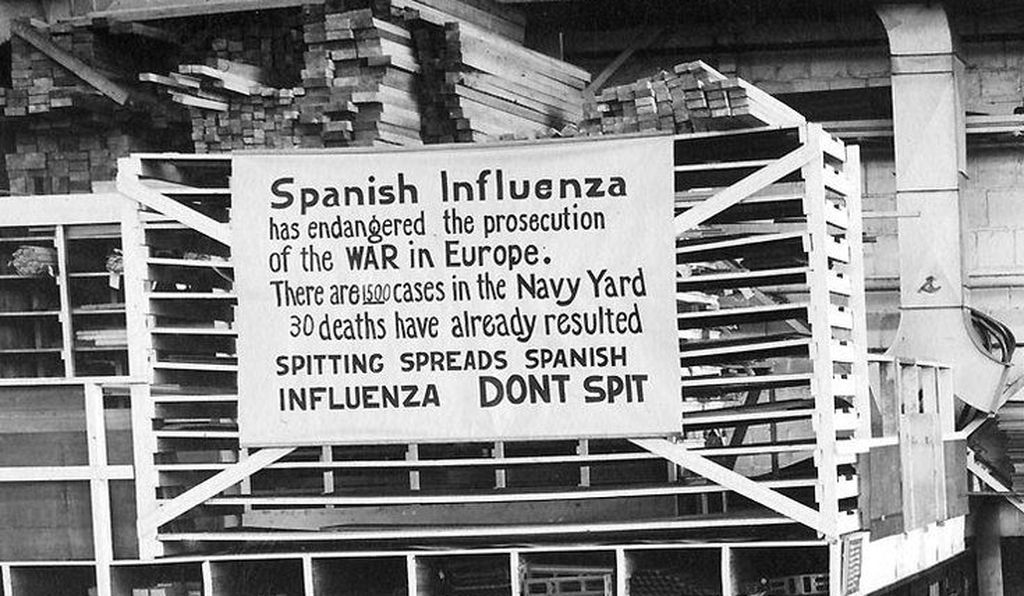
Interstate geopolitics: When Saudi Arabia sought to draw down its forces in Yemen and declared a unilateral ceasefire, there were optimistic predictions that the pandemic could promote interstate peace. NWO.AI's predictive platform, which tracks 20 million mega and micro shifts in real-time and warns clients on inflection points, has curated mounting evidence that such predictions were highly overblown. Bombings Continued Amidst Declared Ceasefire between Saudi Arabia and Yemen. The signal for the conflict, although a few points lower than its peak in February, reached a fresh inflection point (represented by the stars) on June 7.
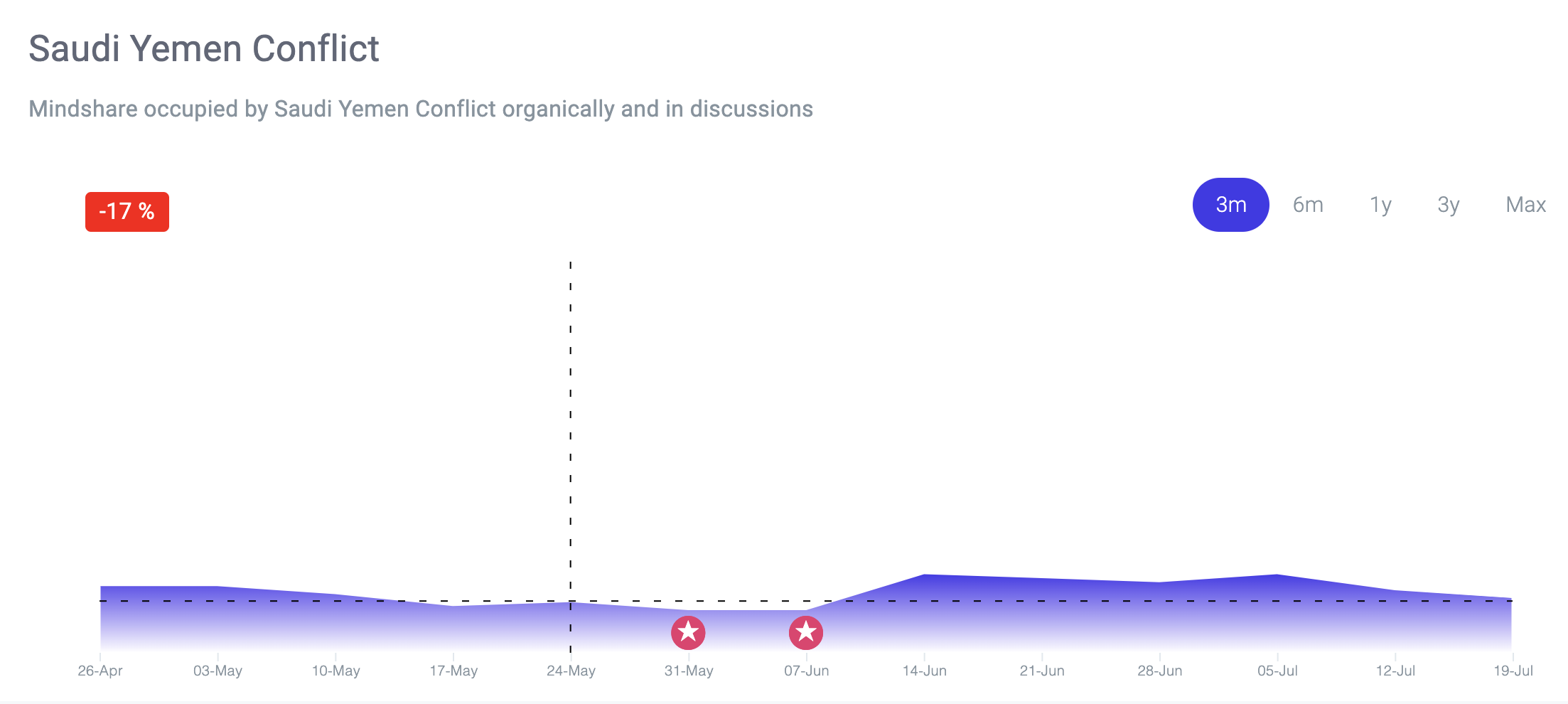
This isn't an isolated incident. Just two weeks ago, we made a prediction in our newsletter about an existential conflict brewing between Egypt and Ethiopia. The signal triggered multiple inflection points in just this past month, as sentiment for going to war in Egypt remains high.
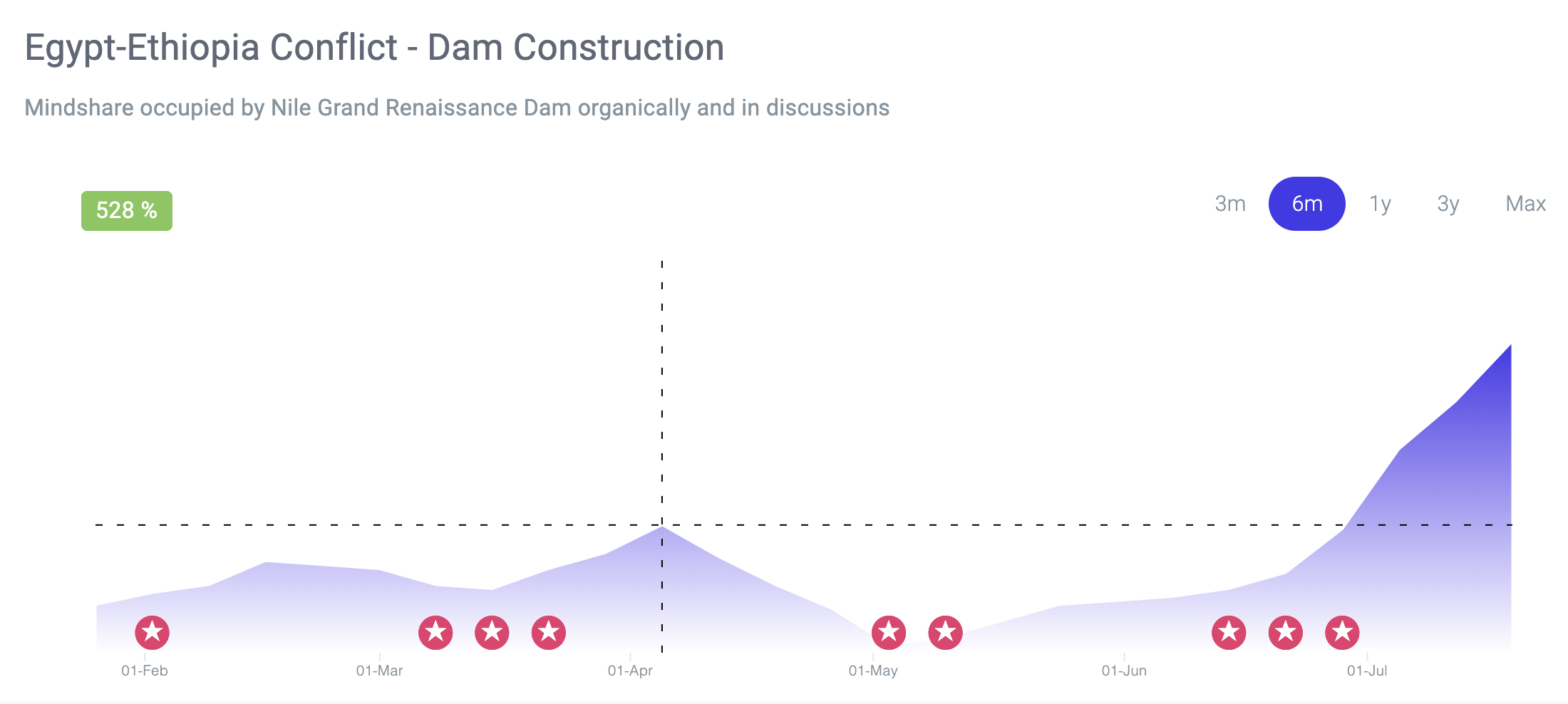
Similarly, in Asia, NWO.AI predicted a major geopolitical fissure between India and China related to the border issue on May 10th. Eventually, the tensions boiled on June 15 leading to over 20 fatalities.
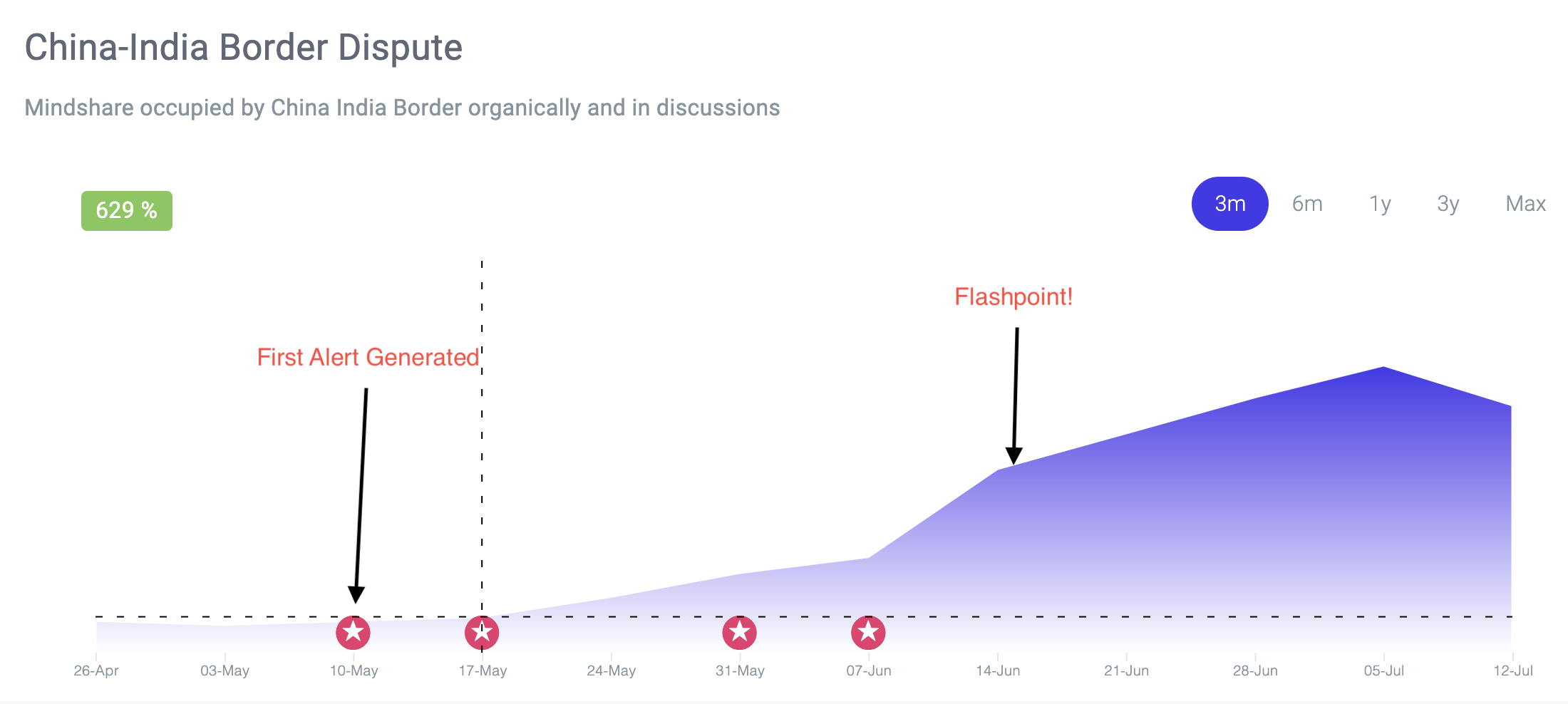
Domestic upheavals: With the stabilizing effect of nuclear weapons on superpower relations by making any conflict very costly, a full blown-out war is still relatively less likely compared to major domestic upheaval around the world. COVID-19 has shown how seemingly stable governments can fail to perform basic functions and promote security. This isn’t humanity’s first rodeo– the Great Depression brought with it fascism, xenophobia, and nationalism. Mass unemployment and debt burden have created deep fissures in society with minorities having found themselves in the crosshairs of state-enforced repression. For instance, the signal related to Uyghurs, a Turkic-speaking minority ethnic group in Xinjiang, reached a fresh inflection point over the last 2 weeks, with the sentiment turning peak negative. The signal for Anti-Semitism has grown dramatically over the last 3 months - by 781%.
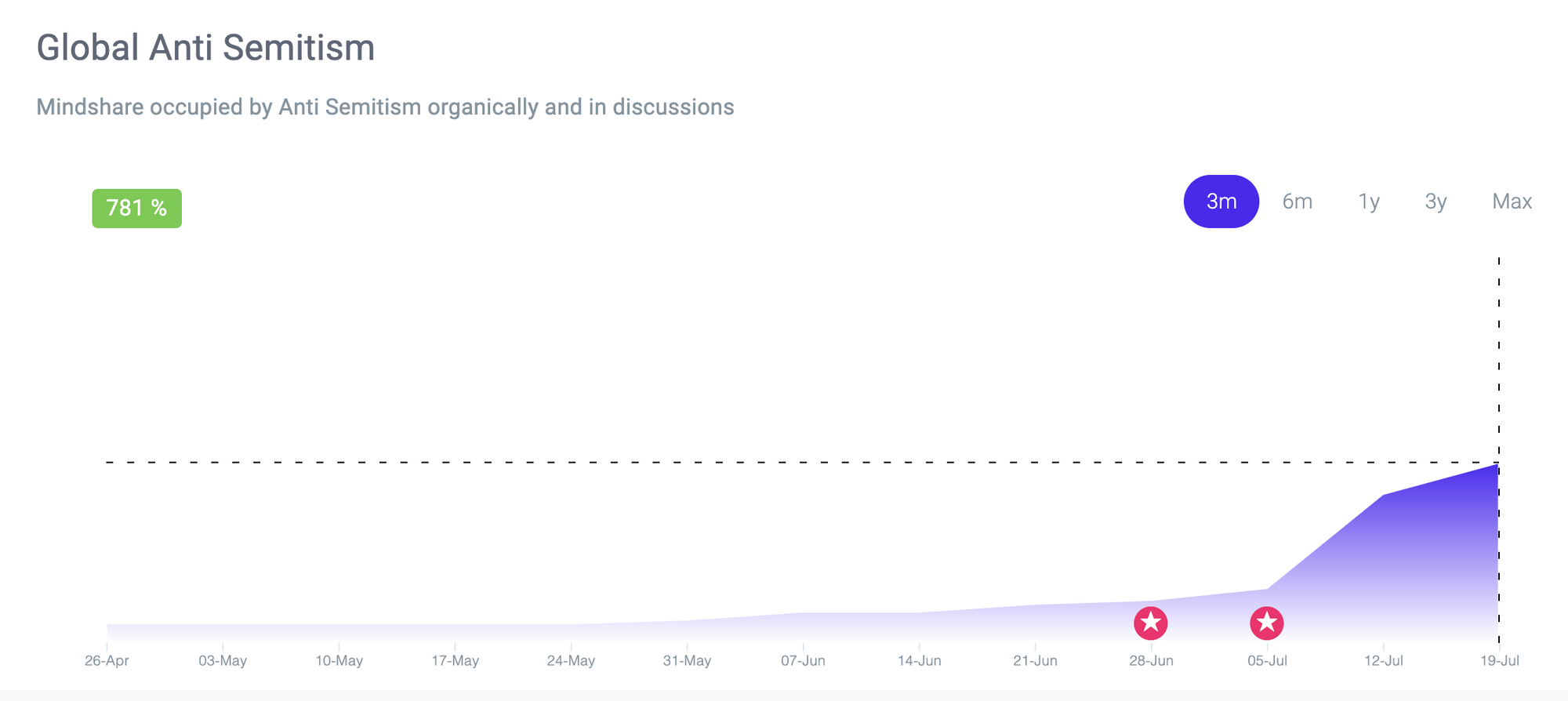
Protests and demonstrations are erupting worldwide. NWO.AI’s platform alerted clients of 2 major inflection points in its previously non-existent signal in early May. Since then, the signal has grown almost 2500%. Similarly, the signal for “racism" has grown by 4600% over 3 months.
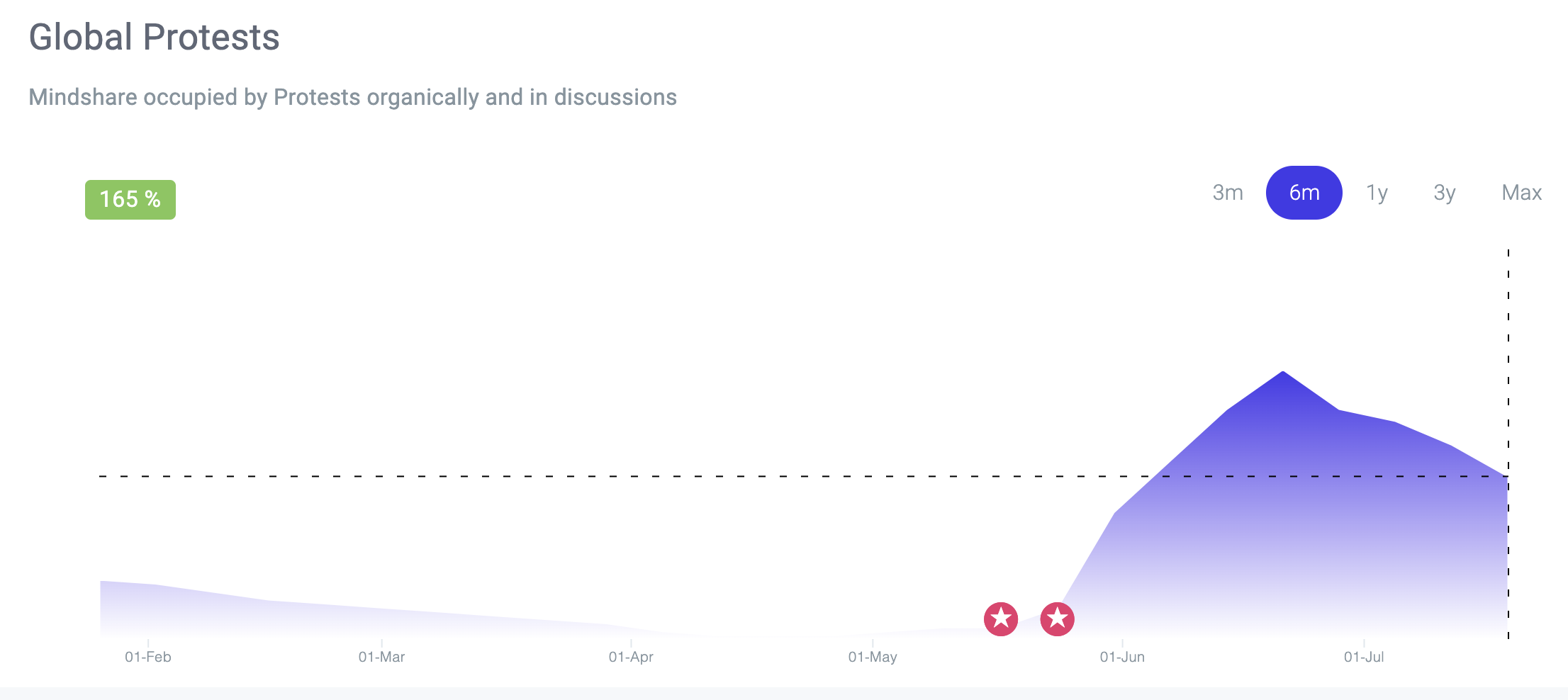
The link between “fascism" and Hungary has grown by 466% over the past year, only accelerated by the pandemic.
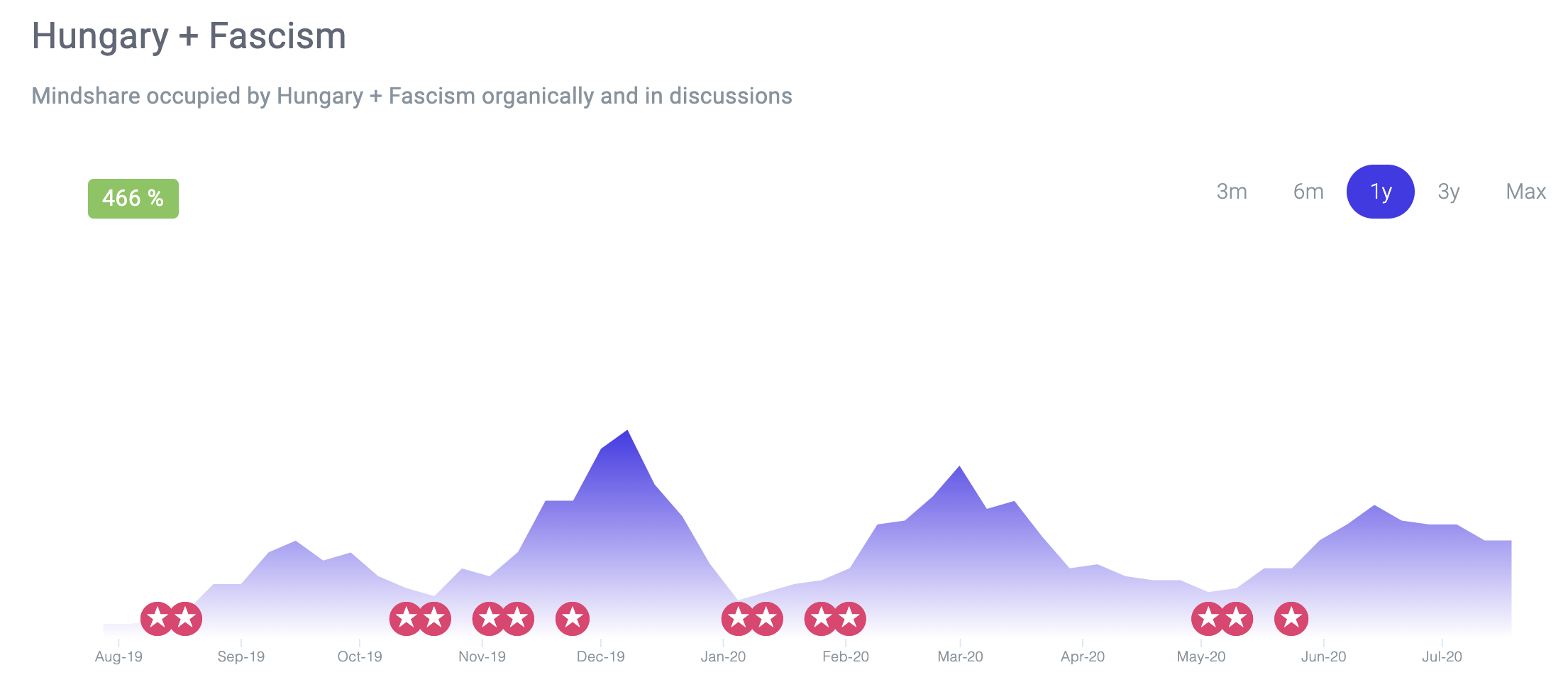
A famine in the shadow of the pandemic: The pandemic has disrupted supply chains of food and other important commodities between regions. Famines aren't just caused by failure of crops, they can also be enabled by economic shocks such as rapid inflation, and violent conflict or other political causes. In our newsletter last week, we predicted a second wave of locust outbreaks across Africa and the middle east, a signal that threatens food security for 13 million people.
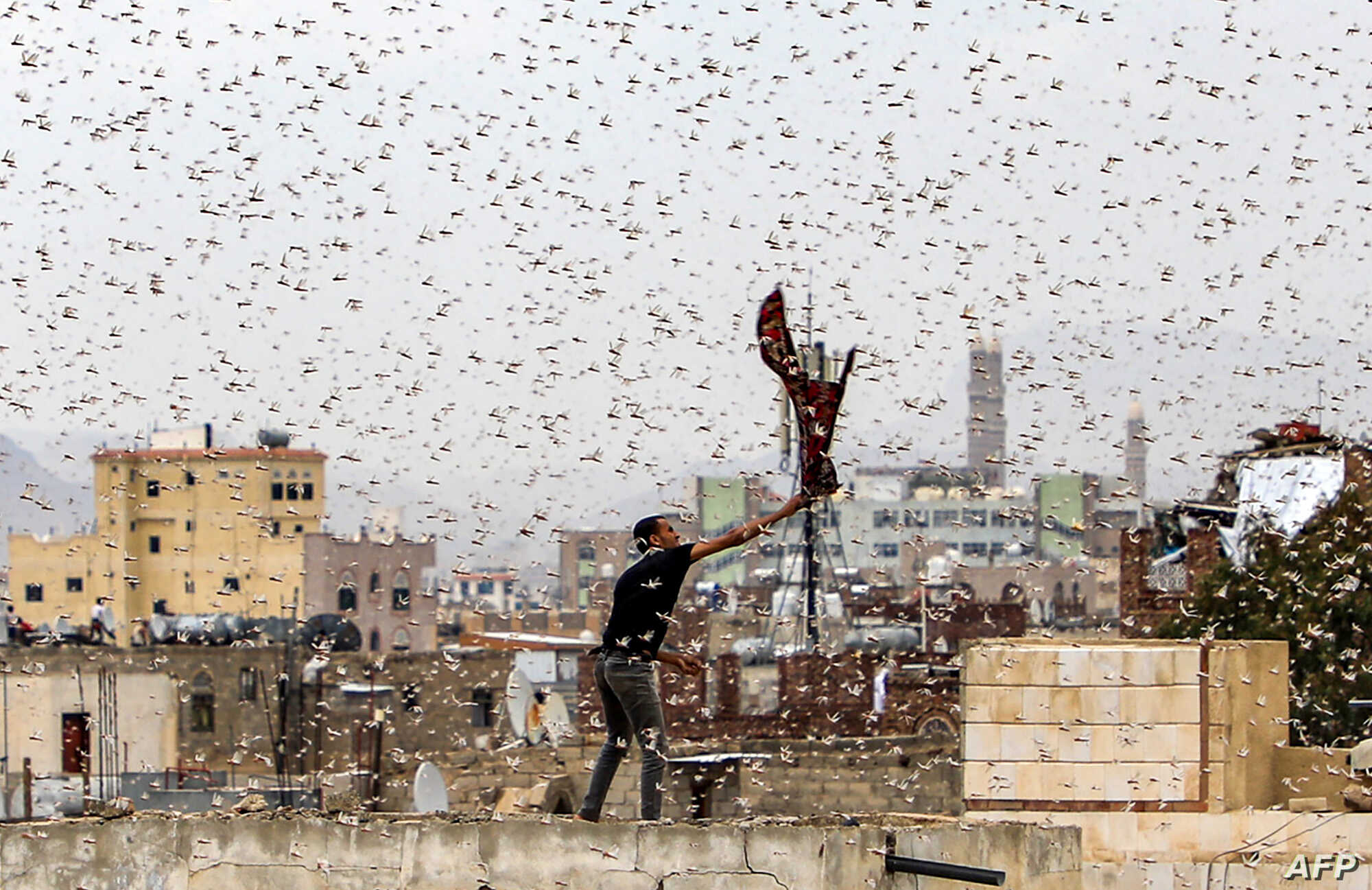
Putting it all together: At this moment, there’s no shortage of warning signs of global convulsions and domestic upheaval. The onus is on state actors to proactively monitor signals and take prescriptive action ahead of time to course-correct their governance.
A final note: In Kissinger’s words – any system of world order, to be sustainable, must be accepted as just—not only by leaders but also by citizens. Order and freedom, sometimes described as opposite poles on the spectrum of experience, should instead be understood as interdependent variables. With the breakdown of the old world order, perhaps, a shock such as the one delivered by this pandemic might help leapfrog the world into a reformed new order from its current stasis.
As always, thank you for reading. Please invite your friends to sign up here.